Yesterday, before I even put my car in park after work, it completely shut off. I’m so thankful it didn’t happen any sooner! When I’m driving, why would my car suddenly stop?
Please read on for more detailed information.
Table of Contents
What Would Cause a Car to Shut Off While Driving? 4 Common Causes
Unfortunately, there isn’t a universal explanation for why your car might stall while you’re driving. You (or your mechanic) will need to perform some troubleshooting to identify the underlying cause of the issue.
You’ll typically find one of the following issues to be the root cause of the concern:
Ignition System Problems
The spark necessary to ignite the mixture of air and fuel inside your car’s engine is produced by the ignition system. The ensuing series of explosions produce the energy required to move your car forward. The ignition system’s spark is what starts the car moving.
As you might expect, issues with the ignition system can result in stalling while driving. The issue is typically caused by an ignition system component that affects all of the engine’s cylinders, such as a faulty crankshaft position sensor, rather than a component that affects just one cylinder (e.g., a bad spark plug).
The ignition switch is another part of the ignition system that frequently leads to engine stalling. When your car’s key is in the “run” position, the ignition switch provides a pathway for electricity to travel from the battery to the engine management components, such as the fuel injectors and ignition coil(s). The engine will stall if the switch does not make good contact.
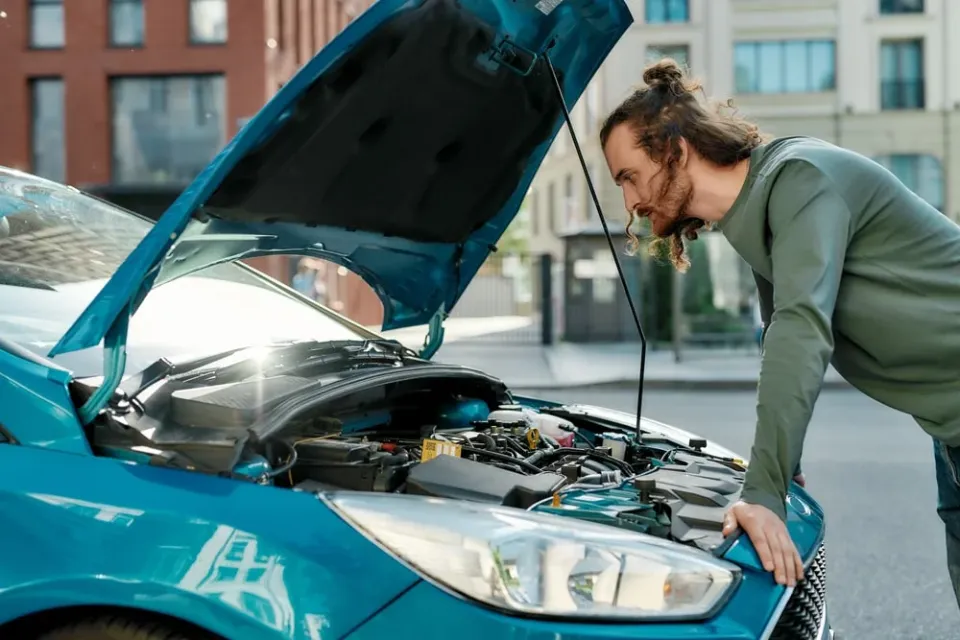
Fuel Delivery Issues
There are numerous fuel system designs in use today. A low-pressure pump, however, is used in a typical port-injected fuel system to transfer fuel from the tank to the engine’s fuel injectors.
Engine stalling can be caused by a lack of fuel pressure or volume. Common culprits include a faulty fuel pump or fuel pump relay. A clogged fuel filter or bad fuel pressure regulator is also common on return-type fuel systems.
The fact that the car is out of fuel is another issue that is frequently disregarded. Sometimes the fuel gauge breaks or is inaccurate. So, you don’t realize you’re out of fuel until the engine quits.
Battery and Charging System Problems
All of your car’s electronics, including those that keep the engine running (such as the computer and fuel injectors), are powered by the battery and charging system.). Something as simple as a loose battery cable can rob the entire vehicle of electrical energy, causing the engine to stall. Alternator overcharging or undercharging can also result in a vehicle that stops running while driving.
Internal Engine Failure
A car that crashes due to an internal engine failure is without a doubt the worst-case scenario. There’s a chance you’ll hear some unsettling noises (rattling, knocking, etc.) when the engine fails.) right before the vehicle stalls. A car that stops working because of an internal engine problem frequently won’t restart.
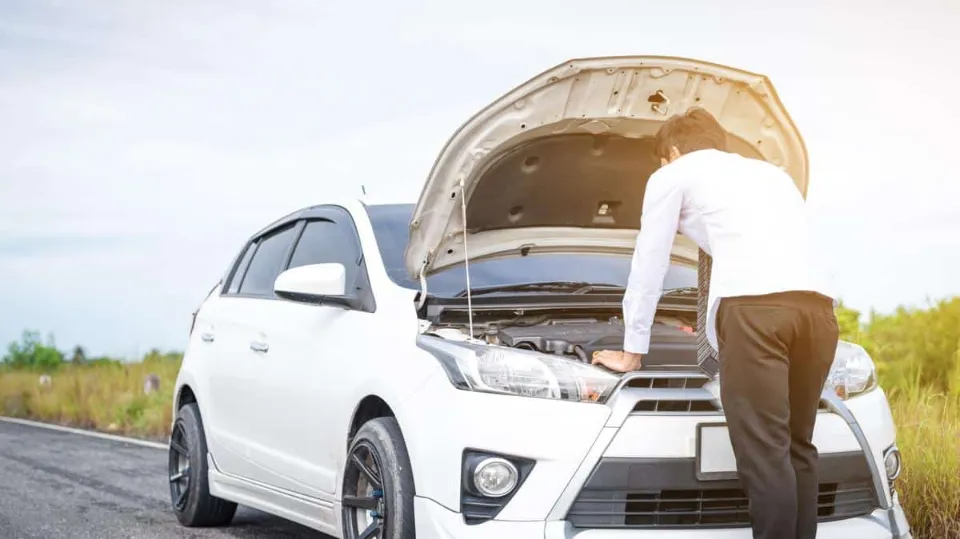
How to Fix a Car That Shuts Off While Driving?
Checking the engine control module for error codes and all sensor data should be your first line of defense if your car shuts off while you’re driving. Additionally, make sure the tank is filled with fuel and the alternator is charging.
Here is some more detailed information on how to fix your car shuts off while driving issue:
Check Trouble Codes
With older car models, you had to diagnose the car with a multimeter or just common sense to find a problem. Fortunately, modern cars have built-in diagnostic software that detects when there is a problem with one of the engine sensors and then stores a fault code resulting in a check engine light.
You no longer need to waste time measuring each sensor in your car’s engine, which greatly simplifies diagnosis. You also don’t have to wing it and swap out the incorrect parts.
Therefore, the best way to determine why your car shuts off while you’re driving is to check these trouble codes in the engine control module and see if there is any stored issue. An OBD2 scanner is necessary to read the fault codes, though. You have two options: either you purchase one on your own, or you visit a repair shop, where they will read the codes for you.
Using the information from the diagnostic scanner, continue troubleshooting. For instance, if you discover a misfire trouble code, it might be brought on by faulty spark plugs, an ignition coil, or the ignition system.
Check the Alternator Voltage
The next thing you want to do is check the alternator voltage while the engine is running if you don’t have an OBD2 scanner or can’t locate any stored error codes.
Basically, you have to engage the emergency brakes, start the car, and use a multimeter to check the battery voltage. A problem with your alternator or charging system may exist if the reading falls below 12.5 volts.
Fill the Fuel Tank
Despite the fact that it might seem obvious that you need to fill up the fuel tank, you might actually have low fuel even if you’re not aware of it. As a result of the fuel pump sucking air instead of fuel when the fuel level is low, the engine may stall when cornering at higher speeds.
Additionally, there is a chance that your tank’s fuel gauge sensor is malfunctioning, causing your fuel level to be lower than what the fuel gauge indicates. Therefore, you should open the fuel cap and add a small amount of fuel to check this.
Check Fuel Pressure
You should check the fuel pressure in your car because low fuel pressure is another common problem that can cause your car to shut off while you’re driving. The fuel rail or line should be connected to a manual pressure gauge for the best results when checking the fuel pressure.
If there is a pressure sensor in the car, you can also use a diagnostic scanner to measure the pressure from it, but there is always a chance that this sensor is faulty. Check the fuel pressure specifications for your car, and if you notice that the fuel pressure is low, you need to inspect the fuel filter, fuel pump and fuel pressure regulator.
Inspect the Tachometer
The RPM meter or so-called tachometer on your dashboard receives the information from the crankshaft position sensor in most car models.
When your car shuts off while you are driving, or if it does not move when the engine is started, it may indicate that there is a problem with the crankshaft position sensor or camshaft position sensor.
Check the Dashboard
When your car shuts off, the next thing you should look for is lights on the dashboard. A problem with the ignition switch may be present if you notice that the dashboard lights turn off when the car engine shuts off.
However, as we previously mentioned, a bad alternator can also be the reason for low battery voltage. You should inspect both of these things if that is the case.
Check Sensor Data
If you cannot find any error codes stored in the ECU, but still have a problem with your car, you need to check data from all car engine sensors with an On-Board Diagnostic Test.
You’ll need an engine control module-compatible diagnostic tool to check this data. It can also be quite difficult to know what readings these sensors are supposed to give, so you will first need to obtain a repair manual or the specifications of your vehicle.
Talk to a Professional
If you’ve tried the suggestions above but your car still shuts off while you’re driving, it might be a good idea to get professional assistance. It might be wise to seek assistance from someone who has dealt with this problem many times before, even though it might be expensive.
Additionally, hiring a mechanic may not necessarily cost more if he can quickly and accurately identify the issue without replacing the wrong components.
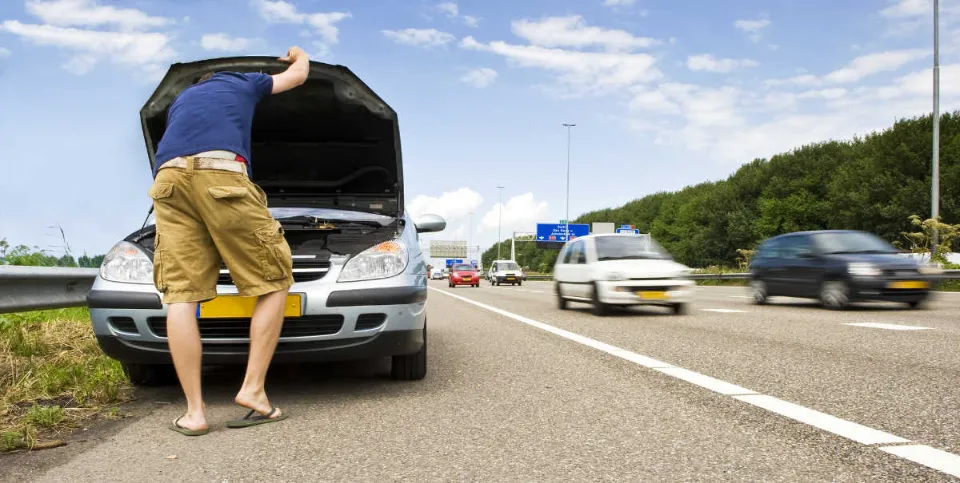
What Should You Do When Your Car Shuts Off While Driving?
If your car shuts off while driving, follow the steps below to find help:
- With no brakes and no steering wheel power, moving the car to the side of the road may seem difficult, but you can still coast to a stop or shift into low gears. If slowing down is too challenging, pull over to a safe spot and apply the emergency brakes.
- If the car completely shuts down, try restarting it. If it still won’t start, you’ll need to seek professional assistance.
- Emergency flashers should be turned on so that other drivers are made aware of your situation and you can assist.
- Call a mechanic: Car owners benefit from choosing a reliable mechanic. To get to your location in this situation, you need dependable auto maintenance personnel. However, you could opt for towing services to get the car to the nearest repair shop.
FAQs
What Causes a Car to Stop Suddenly While Driving?
Engines usually stop suddenly only if they suffer from a lack of fuel or sparks . An engine that abruptly stops without warning has likely experienced a sudden ignition failure, though it is more likely to have seized if it locks solidly.
Can Low Oil Cause a Car to Shut Off?
Several fail-safes are built into many modern cars to help safeguard the engine in dangerous situations. One of this is an automatic shutoff when the oil pressure drops to a certain level, or the oil level drops too low (note that this is not true for all cars). The engine stalls out as a result, dying.
Can Bad Spark Plugs Cause a Car to Shut Off While Driving?
Malfunctioning spark plugs can make an engine stop for a while and resume its normal functioning. While you’re driving, it might occur. When idling, the engine can make a rough noise. Because the failing spark plugs lack the ability to ignite the fuel-air mixture, the misfires prevent your car’s engine from operating as it should.
Can a Bad Fuel Filter Cause Car to Shut Off?
Stalling: If a clogged fuel filter goes unaddressed for too long, it may eventually cause the engine to stall as ideal fuel flow dwindles.J


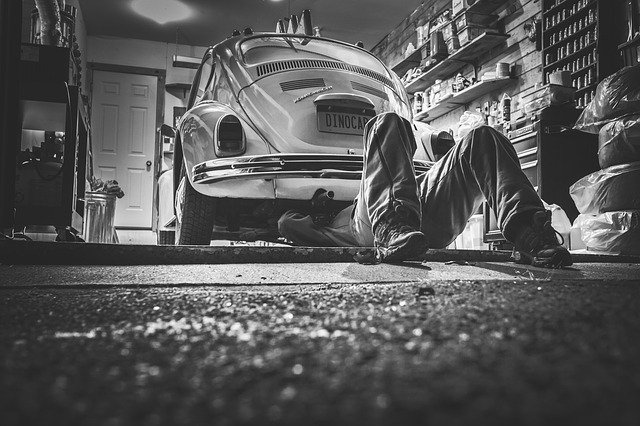
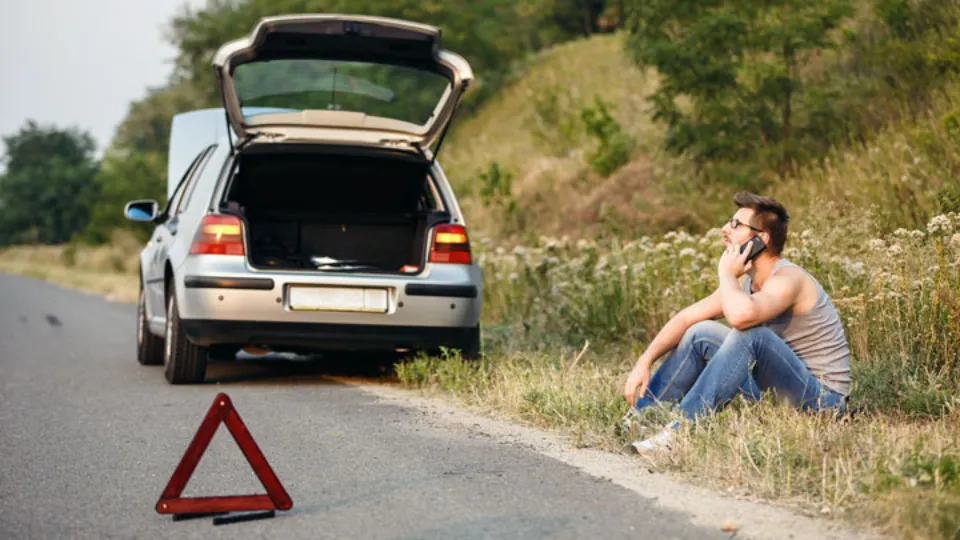

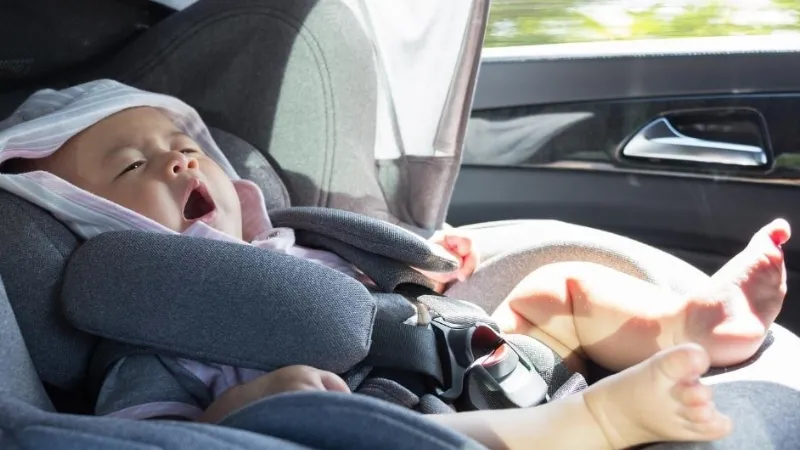
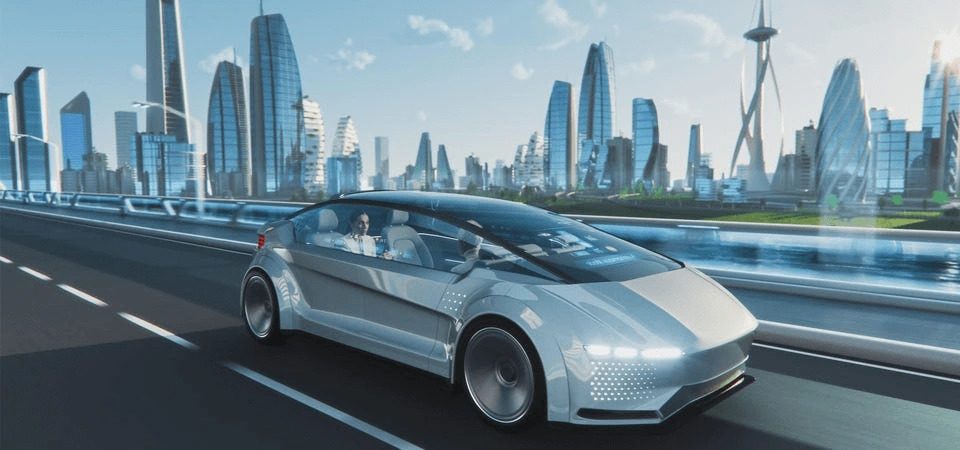

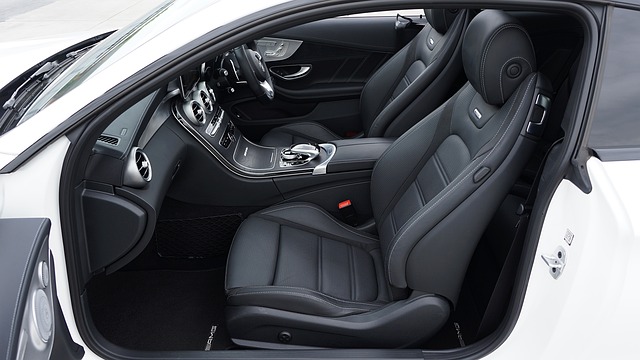

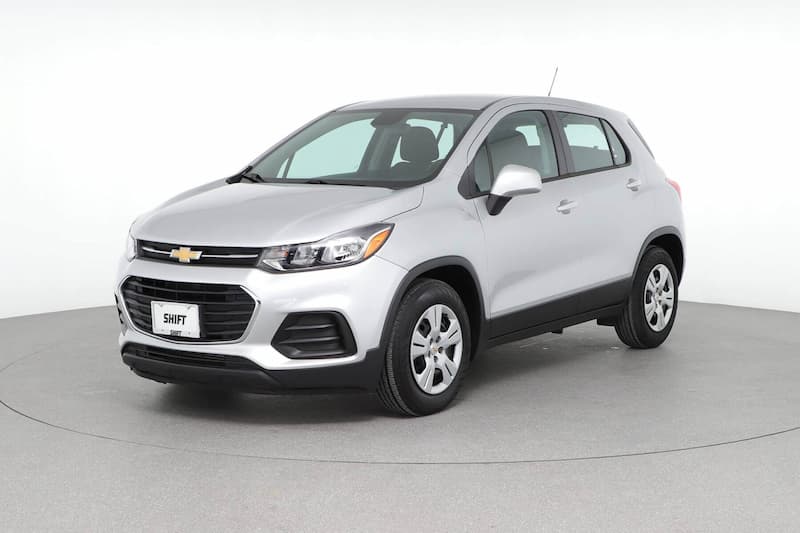
-2.jpg)